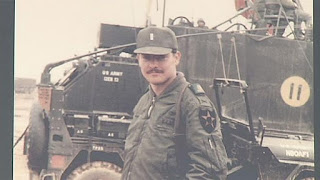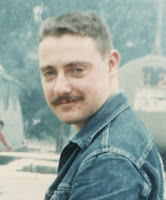
It was a part of why I decided when I retired to stop just talking about veteran issues and to start doing something about it.
Last year (2018-since retired for medical reasons), I became a veteran service officer for the Washington State Chapter of the Vietnam Veterans of America. And for that organization, I also became Chair of Veteran Benefits Programs for this state.
If you need help, please contact a Veteran Service Officer through the Clark County Veterans Assistance Office at 1305 Columbia Street, Vancouver, WA 98660 or make an appointment by calling 360.693.7030.
All charitable organizations need actual hands-on help more than they need money. Giving donations to these groups is important. Actually becoming involved is even more important.
I urge you to find some group that you can help… and get out there and help them. The pay is practically nothing if you go to work for them.
 But the rewards are incalculable.)
But the rewards are incalculable.)
I originally posted this 13 years ago today (24 Dec). And it bears repeating.
This story was in the paper… although, unfortunately, not on the Columbian web.
It is the story of a retired Army Major, one Thomas Egan; a veteran of 2 years on the Korean DMZ, a Master’s graduate of the University of Oregon; a retired Oregon Army National Guard officer.
He was found dead, apparently frozen to death, next to a bottle of booze, in Eugene, Oregon within the past few days.
Unfortunately, the story speaks for itself. Sometimes, the desire to destroy one’s self can overwhelm all other instincts.
I never knew you, Major, but we served together at the same time. I have no idea what happened to you, but I wish I did… and I wish it could have been fixed.
Tomorrow is Christmas. If you know someone who needs help, take the time and the effort to try and get that help to them. Major Egan had help available, but made bad choices when it came to using it.
As I look outside at the foot of snow, I ask myself: “how many Major Egans are there?”
Is there more that could have been done?
Probably not.
But I wish there had been.
Good bye, Major. From all accounts, you served us honorably and well. I never met you, but I won’t forget you.
I could have been you.
Soldier’s death resonates
Homeless veteran froze to death though services were available
By JACK MO
(Eugene) Register-Guard
EUGENE, Ore — Thomas Egan was a scholar and a decorated soldier. He was also a homeless alcoholic whose life ended last week when he froze to death in Eugene during an unusually long and harsh cold snap.
His body was found covered in snow near the corner of West First Avenue and Blair Boulevard, a bottle of liquor by his side.
News of the demise of the longtime Eugene resident troubled many local veterans — especially those who knew that with some effort and some help, the man they called Major Egan could have had a roof over his head.
“The whole National Guard community is taking this very hard,” said Bud Dickey, a vocational rehabilitation coordinator with the U.S. Department of Veterans Affairs’ community reintegration service center in Eugene.
“It’s very disturbing for all of us, because Major Egan was retired and could have been drawing his (veterans’) benefits,” Dickey said. “He had options that he did not access.”
Egan collected monthly Social Security checks, but the amount was a pittance compared with the payments he was entitled to as a retired military veteran. When he turned 60 in July, Egan became eligible to receive $909 each month in National Guard retirement income, Dickey said.
Egan also could have applied for a separate pension check based on unemployability. “That would have gotten him an apartment if he wanted one,” said Jay Rea, a Springfield resident who served under Egan in the National Guard in the late 1980s. “I shed a tear when I heard he died,” Rea said. “It breaks my heart because he was the friendliest guy, and so smart.” A New York native, Egan joined the Army in 1971 after graduating from Quinnipiac College in Hamden, Conn., with a bachelor’s degree in history.
He was stationed at the demilitarized zone between North and South Korea for two years, and was reassigned to the Oregon Army National Guard in 1977.
Earned master’s degree
Egan earned his master’s degree from the University of Oregon in 1983, and ultimately attained the rank of major with the National Guard.
He retired honorably in 1991, following a 20-year military career during which he was awarded several service medals and ribbons.
Dickey said Egan’s desire to drink made him ineligible for VA housing programs that require sober living.
Egan had declined to enroll in substance abuse treatment programs offered through the veterans agency, Dickey said.
According to those who knew him, Egan worked sporadically. He did some landscaping, and most years helped deliver telephone books.
Sometimes, he found an apartment to stay in for a while. At other times, he lived on the streets. In August, Egan spent two weeks at the Eugene Mission — which is less than one block from the spot where a passer-by discovered his body last week.
Mission officials said Egan never caused any trouble there, and could have stayed any time. Dickey said Egan has no relatives in Oregon, and tracking down members of his extended family on the East Coast has been challenging.
Dickey, who served five years with Egan in the National Guard, is helping to direct an effort to have Egan interred at the Roseburg National Cemetery.
“He will be buried as a veteran in a veterans’ cemetery,” Dickey said. “He was a good soldier, and we’re going to get him the burial he’s due.”





